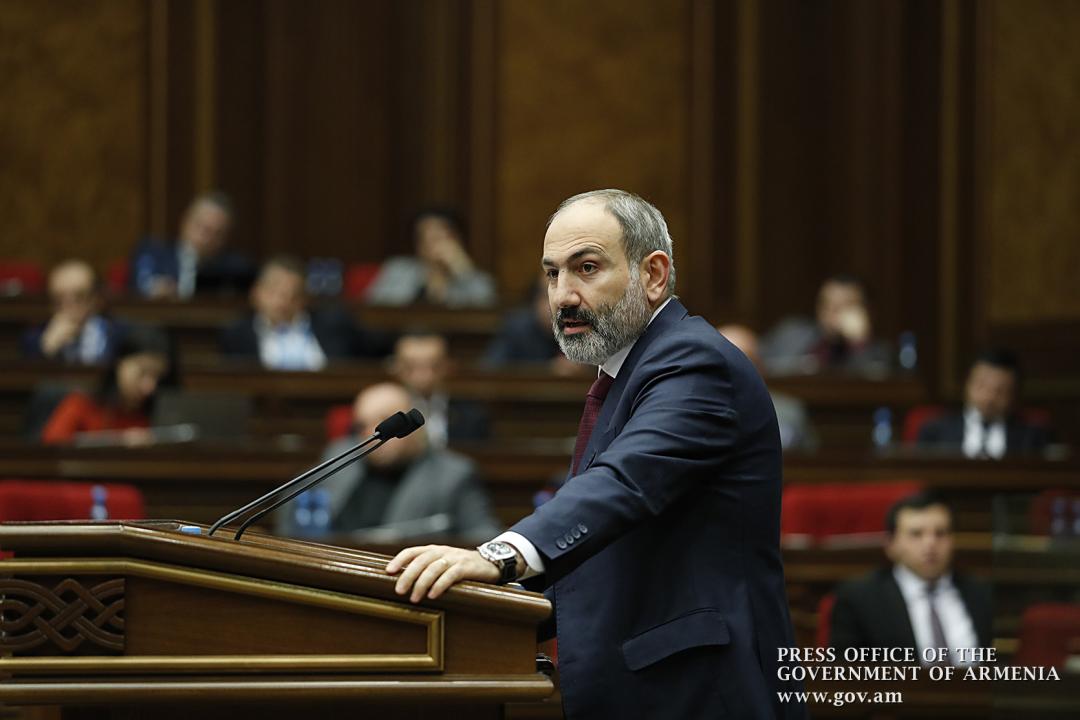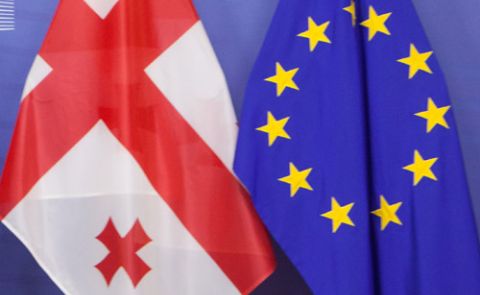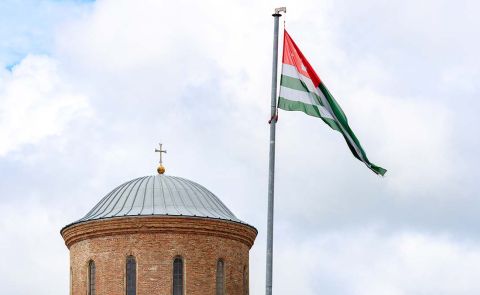
Political crisis in Armenia: government and opposition in deadlock over snap elections; diplomatic offensive regarding Karabakh launched

On 21 January, the parliamentary opposition parties in Armenia, Prosperous Armenia (BHK) and Bright Armenia (LHK), continued to dismiss Prime Minister Nikol Pashinyan’s proposal to hold fresh parliamentary elections, reiterating that he must resign and hand over power to an interim government.
“We haven’t changed our position that Pashinyan’s resignation must happen without preconditions,” said Mikael Melkumyan from the BHK. “The parliament must have a chance to elect a new prime minister who will stabilise the situation for some time, for up to one year … and we will hold the elections in that case. Holding such elections in this situation one or two months later would be fraught with very serious dangers,” he added.
A day earlier, the ruling My Step offered the BHK and the LHK to sign a “memorandum” on snap polls that would commit the parliamentary opposition to not fielding prime-ministerial candidates in the event of Pashinyan’s tactical resignation. The leader of the LHK Edmon Marukyan rejected this proposal saying that it was put forward because Pashinyan and his entourage fear that pro-government lawmakers would break ranks and vote to elect him as prime minister.
The Vice-Chairman of Armenia’s Parliament Alen Simonyan warned that the government could withdraw Pashinyan’s proposal if opposition forces continue to demand Pashinyan’s resignation. Simonyan stressed that the conduct of the vote proposed by Pashinian hinges on a broad-based political “consensus” in the country. “I don’t rule out that in case of an opposition decision that there need to be elections, our faction will find a legislative solution to that issue. But I also don’t rule out that there will be no elections at all. If the opposition feels that it cannot participate why should we hold the elections?” he said. The LHK representatives dismissed this warning as a “blackmail” from the ruling team.
Meanwhile, Armenia’s Foreign Minister Ara Ayvazyan launched a number of high level meetings in order to discuss the post-war situation in Nagorno-Karabakh. Ayvazyan first held a telephone conversation with his French counterpart Jean-Yves Le Drian. The need to address urgent humanitarian issues, in particular, the return of Armenian prisoners, steps taken to resolve the humanitarian crisis in Karabakh, as well as the steps towards the preservation of the Armenian historical, cultural and religious heritage in Karabakh were amongst the topics of discussion. Afterwards, Ayvazyan met with the ambassadors of the OSCE Minsk Group co-chair countries, Sergey Kopyrkin (Russia), Jonathan Lacotte (France) and Lynn Tracy (USA) to discuss the same topics.
Armenia’s Defense Minister Vagharshak Harutyunyan also held a phone conversation with his Russian counterpart Sergey Shoigu. It was reported that the defense ministers discussed urgent issues of bilateral cooperation in the field of defense, the operational situation in the Nagorno-Karabakh conflict zone, the return of Armenian prisoners of war and hostages held in Azerbaijan and the number of issues related to the search for missing soldiers. While addressing the issue of security cooperation with Russia in the parliament, Pashinyan emphasised that it has reached a “very intensive level.” According to Pashinyan, the biggest, fundamental problem of Armenia's security system, was that the main pillar and architecture of the security system was associated with the Collective Security Treaty Organization (CSTO), while the major threats for the country hail outside the legal territory of the CSTO.
The country’s Ombudsman Arman Tatoyan called for an immediate halt to the process of border demarcation between Armenia and Azerbaijan, as in his opinion is carried out with gross violations of human rights. He said that the current approach of border demarcation would not only fail to contribute to the peaceful coexistence of peoples in the region, but would also create fertile ground for unceasing hatred and enmity towards Armenians in Azerbaijan and for dangerous manifestations of this discontent.
See Also


BP Strengthens Presence in Azerbaijan’s Offshore Energy Sector

Netanyahu’s Letter to Aliyev: Mutual Trust, Solidarity Following Hamas Attacks, Facilitating Dialogue Between Israel and Türkiye

Azerbaijan Expands JF-17 Thunder Fighter Jet Order from 16 to 40 Units

EU Commissioner and NATO PA Warn Georgia Over Democratic Decline Amid Accession Challenges

